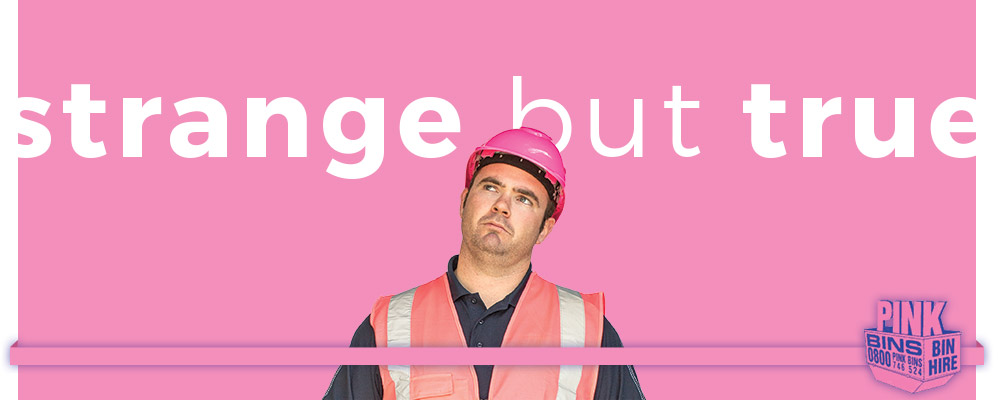We care about the environment at Pink Bins. That’s why we recycle as much as possible. We’re not the only people making an effort, though, as you will discover by reading this post.
A suitcase full of plastic
In January, we wrote about how soft plastic recycling had stopped in New Zealand due to China no longer accepting international plastic waste. Thankfully, things are expected to get back to normal later this month. Until plastic bag recycling is back up and running, the Packaging Forum has asked people not to stockpile their plastic bags and, instead, put them in with other non-recyclable waste. A dedicated champion of sustainability PC Tong, however, had other ideas when he flew home to Hong Kong last Christmas. You see, in Mr Tong’s homeland’s plastic bag recycling was, and still is, in operation. So, he took two suitcases for the trip: one filled with his belongings and the other with soft plastic rubbish to be recycled. Now, that’s commitment!
In New Zealand, about 252,000 tonnes of plastic waste goes to landfill every year.
A plastic prohibition
First, they banned plastic bags and foam containers. Now, the powers that be of San Francisco in the United States have gone one step further: They have banned the sale of water bottles in public spaces that hold 0.60 kg or less. Anyone who violates the ban will receive a whopping US$1000 fine. As statistics show that around half of all plastic containers get thrown away after the first use, this move has got to be a good thing.
Throw it to the worms
Mealworms are the larvae of mealworm beetles. Why are we telling you this? Well, according to a recent study these slippery critters can eat — and thrive on — polystyrene and other plastics. This new development is great news because, depending on the environment, it can take up to 1 million years for polystyrene to break down. Thanks to microorganisms that biodegrade plastic in their gut, mealworms can convert polystyrene into carbon dioxide and harmless worm biomass and biodegradable waste.
Albert Einstein once said, “We cannot solve our problems with the same thinking we used when we created them.” It’s good to see that there are plenty of people out there thinking outside the square to protect our planet.
Did you enjoy this post? If so, please share.

